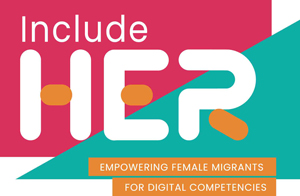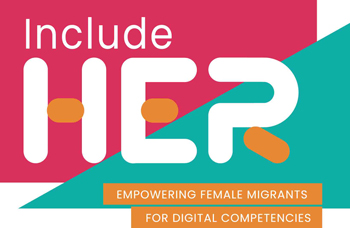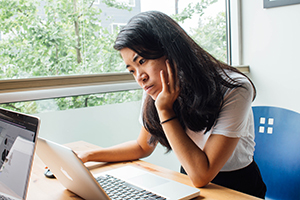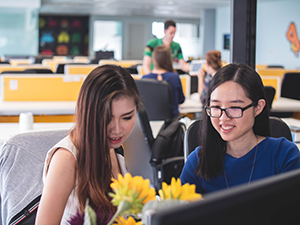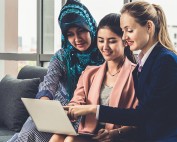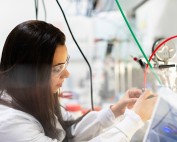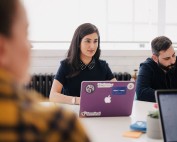More about Include Her
DIGITAL GENDER GAP
The digital gender gap is most acute among migrant/refugees who, as both migrants & women face a double disadvantage that is consistently confirmed by research.” Barriers include the disruption that migration poses to their learning process, cultural gender stereotypes as to the role of women, and discrimination (conscious and unconscious) that limits access to education.
Yet, women that migrate are more likely than men to have higher education degrees, and so while the obstacles are significant, improved digital skills could have an even greater effect on their ability to integrate, especially in the labour market, but also as active citizens in society.
THE ROLE OF HIGHER EDUCATION INSTITUTES
Paris Communiqué (2018) calls us to “enable our education systems to make better use of digital education in order to enhance lifelong & flexible learning, foster digital skills and competences” and so HEIs can and should play a role in this process!
The majority of HEIs have continuing education centres or outreach programmes that could provide digital training, but the vast majority (87%) do not currently provide training aimed at migrants, much less women migrants.
PROJECT ACTIVITIES
The first tangible results of the project will be the intellectual outputs which will be used by HEIs in their continuing education and outreach programmes with female migrants:
- IO1 DIGITAL ROUTE MAP. This interactive, online tool will present indicators of digital competences, thus helping Migrant women to identify their current level of digital competence in each of the five DigComp areas.
- IO2 DIGITAL DEVELOPMENT RESOURCES. These will be a focused yet flexible set of OERs which adapt existing best practice in digital skills education for use with migrant women in continuing education settings.
- IO3 MOOC. This output will enable the OERS to be transferred into a state-of-the-art open access online course to allow women migrants to develop their digital skills in a friendly but effective digital environment.
PROJECT INFORMATION
ERASMUS+ 2020-1-DE01-KA203-005668
The Erasmus + project “IncludeHER”(09/2020 – 08/2022) is a new project coordinated by Johannes Gutenberg- University with the duration of two years. The project started on September 1st and focuses on the development digital skills of women with a migration background through continuing/outreach education. Based on gender-specific differences in terms of motivation and engagement with digital technologies, the resources of the project will better equip Higher Education Institutions in all participating countries helping redress the gender imbalance in the digital sphere and empower female migrants to attain higher levels of digital competence. The result of the project is, on the one hand, the development of an open access online course for migrant women, which should help them to promote their digital skills in a pleasant and effective environment. On the other hand, a new cooperation network is to be created for the project partners. “IncludeHER” is a project funded by the European Commission with partners from Belgium, Ireland, Great Britain, Greece and Portugal.
